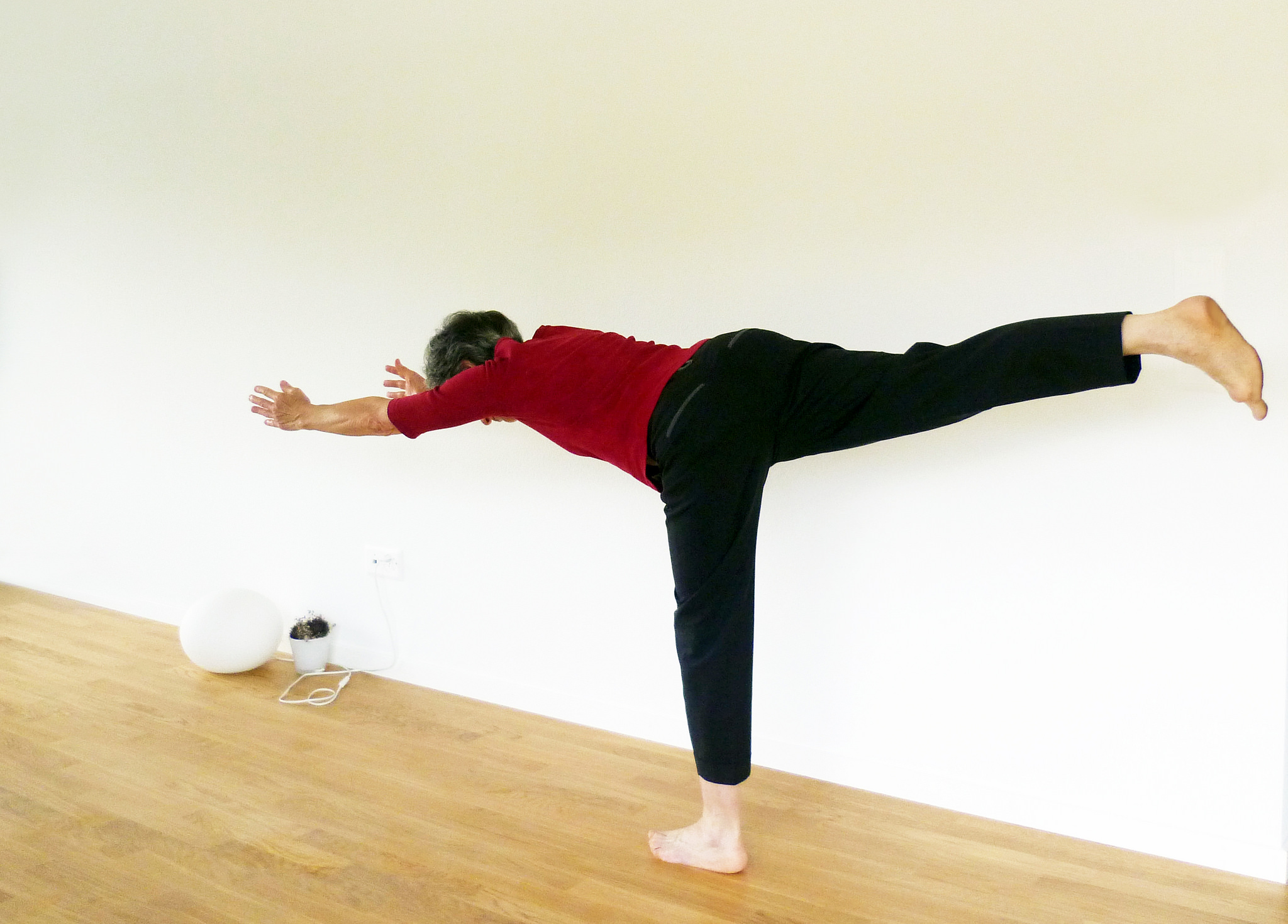New research indicates that a person’s balance may be a telling sign of his or her brain’s health. The inability to balance on one leg for more than 20 seconds may indicate brain damage and a risk of stroke, even in seemingly healthy individuals.
Researchers at the Kyoto School of Medicine in Japan tested about 1400 healthy middle to elderly-aged people. Each subject was asked to stand on one leg, with eyes open, and balance for as long as they could. This was used as a measure of postural stability. Subjects also received an MRI scan of their brain to look for the presence of asymptomatic cerebral-small vessel disease, which includes microbleeds (small amounts of blood leakage from damaged blood vessels in the brain) and lacunar infarction (damage to some of the deeper parts of the brain where large arteries become closed off, depriving the brain of nutrients and oxygen). Lacunar infarction is the cause for about 20% of all strokes, sudden losses of consciousness that occur when blood flow is cut off from the brain. The subjects were then given a series of four tasks to complete to see if any mild cognitive impairment could be found. These tests included visual-spatial tests, which test the subjects’ ability to turn and rotate 3-D objects mentally, and memory tests, which test the subjects’ short term memory.
Results from the study indicated that subjects who could only stand on one leg for 20 seconds or less had significantly more cerebral-small vessel disease factors, including microbleeds and lacunar infarctions. About 35% of the subjects with more than two microbleeds or lacunar infarctions, and about 15% of subjects with one microbleed or lacunar infarction, struggled to balance for more than 20 seconds, indicating a linear relationship between cerebral-small vessel disease factors and balance. In addition, shorter durations of keeping balance on one leg were also linked to lower cognitive function, independent of whether a person had cerebral-small vessel disease or not.
Image Source: Martin Puddy
This research suggests that one’s ability to maintain balance on one leg may be a way to detect changes occurring in the brain as we age. This study showed that postural instability is linked to changes in the brain associated with brain damage, stroke, and loss of cognitive function, even in seemingly healthy individuals of middle age. One-leg balance may be a simple, yet informative diagnostic test for changes in brain health and risk of stroke.
Feature Image Source: balance by Rosmarie Voegtli










